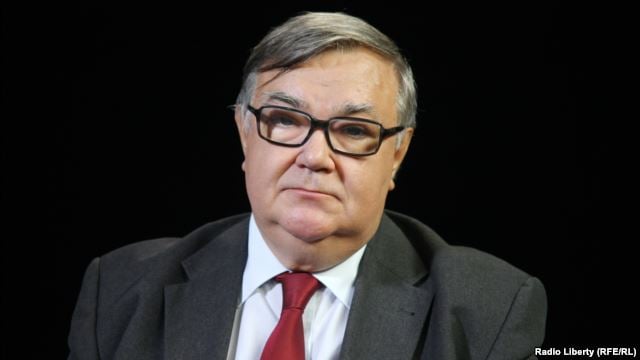
The longtime director of the Russian State Archive has been removed from his post less than a year after he exposed a popular Soviet World War II legend to be “fiction” and railed against Soviet “myths” in front of top officials, Tom Balmforth wrote for RFE/RL.
Sergei Mironenko, who had headed the State Archive since 1992, has been made head of research at the archive.
In an interview with RFE/RL’s Russian Service on March 16, he said that the change was the result of a “collective decision” and that his conflict with authorities, including Culture Minister Vladimir Medinsky in 2015, was “not the deciding factor.”
But the Russian daily Moskovsky Komsomolets cited sources at the archive as saying that Mironenko was very well regarded by all his colleagues and that the conflict may have led to his “unexpected” dismissal. His deputy, Larisa Rogovaya, has been made acting director.
Mironenko had headed the State Archive for nearly a quarter-century, since it was established amid the openness that followed the collapse of the Soviet Union.
He irked President Vladimir Putin’s government in July 2015 when the archive published formerly classified correspondence between top Soviet officials in 1948 that deeply undermined the World War II legend of Panfilov’s 28 Guardsmen, which is popular to this day.
The story concerns a unit of Soviet soldiers led by Major General Ivan Panfilov who were written into the pantheon of national heroism after they were said to have died battling German tanks on the outskirts of Moscow as the freezing winter of 1941-42 set in. They were decorated posthumously. To this day, streets are named after “Panfilov’s Heroes,” and a film about them — backed by the Culture Ministry — is due to hit screens in May. The trailer has been released:
The document published by the state archive, however, showed that Soviet officials recognized the legend was “fiction” after some of the supposedly deceased men were found to be still alive.
On July 20, Mironenko made an appearance on air with the Russian Service of RFE/RL in which he said that the Panfilov legend was not even a myth but a deliberate “falsification.”
The myth-busting activity by an official structure, the State Archive, appeared out of step with the strident conservativism cultivated by Putin in his third Kremlin term, the central ideological importance of the Soviet victory in World War II, and the pervading mood of Soviet nostalgia.
The publication provoked an angry reaction from Culture Minister Vladimir Medinsky, who scolded Mironenko for evaluating documents, rather than working as a dispassionate archivist. The director of the Russian archive is “not a writer, not a journalist, not a fighter against historical falsifications,” Medinsky said. “If he wants to change profession, we will understand this.”
Mironenko had irked the authorities before. In June 2015, he stood up at an otherwise routine World Congress of Russian Press attended by powerful State Duma speaker Sergei Naryshkin and Kremlin chief of staff Sergei Ivanov and railed against Soviet myths.
Mironenko debunked the Panfilov legend at that time and also criticized Soviet dictator Josef Stalin, saying the Molotov-Ribbentropp Pact that carved up Eastern Europe between Nazi Germany and the Soviet Union during World War II should really be called the Hitler-Stalin Pact.
Medinsky is himself currently under political pressure after Grigory Pirumov, one of his deputies at the Culture Ministry, was arrested by the Federal Security Service (FSB) on March 15 in connection with a corruption investigation.
By Tom Balmforth, RFE/RL
Tom Balmforth covers Russia and other former Soviet republics
With reporting by RFE/RL’s Russian Service





